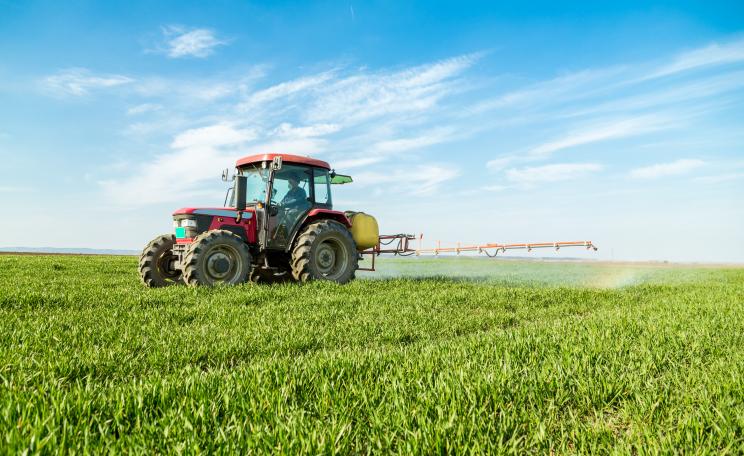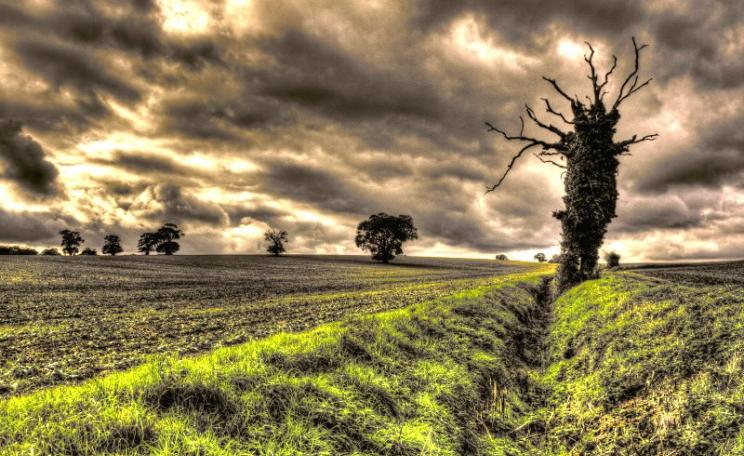Among the first priorities will be to transform bare land which has grown wheat and maize using artificial fertilizers for many years, using a tool box of biodynamic, organic, permacultural and agro-ecological methods.
"If children are given the opportunity to make connections to nature and growing healthy food on a farm, a school garden or an allotment then in the long term, this will lead to them having healthier diet, a broader palette, a greater sense of wellbeing - and it forms the basis for respect for place and nature."
So says Marina O'Connell of the Apricot Centre, who pioneered her work with children "by accident" when setting up School Farm at Dartington Hall in the 1980's.
A university-educated horticulturalist, she then developed the Apricot Centre on a 4-acre smallholding near Manningtree in Essex, growing organic fruit, with 500 square meters of greenhouses for vegetables, an educational centre and a kitchen for food processing, eating and preserving.
Her husband Mark, who runs the Centre with Marina, was then training as a psychotherapist, and is now a practicing child and family psychotherapist. Their professional skills combine in the Apricot Centre and its core mission - to promote human wellbeing through contact with nature, land, plants and amimals.
An exciting opportunity has now come up to expand their work, and take it back to South Devon close to where it all began. They have recently been offered Week Farm, a 36-acre small holding at Dartington, near Totnes, for a demonstration biodynamic farm.
This would include growing biodynamic vegetables outdoors, fruit, and raising chickens and cows. The Biodynamic Land Trust is now supporting a community buy out of the farm, launched this summer.
What a flap! Chickens and children ...
When Marina first started market gardening at Dartington Hall, she kept chickens on the 8-acre site. Every day the local pre-school group would wend their way after lunch to the garden for their walk, and brought their left overs from lunch to feed the chickens.
After some months, the chickens saw the children snaking across the field and knew they were in for a treat, so they would start flapping and squawking. The children also knew they were in for a treat and also got excited.
One rainy afternoon, the chickens were penned in the field tidying up after a crop, enclosed with a flimsy electric fence, which was turned off as soon as the children arrived.
As the children approached, the chickens flapped their wings, the children leaned on the fence and suddenly the chickens got out into the field, the children got in to the chicken pen and muddy mayhem happened.
Marina remembers this as one of the hilarious highlights of her 10 year career at Dartington Hall. These observations made Marina realise that children love chickens and chickens love children, and that this excitement around collecting eggs and feeding animals also carried through to digging up potatoes, picking a strawberry, sowing a seed and more.
Wellbeing with nature and animals
Over the years, The Apricot Centre has worked with more than 20 schools introducing outdoor classrooms, inviting them to their small farm for the experience of food growing.
Among the first priorities will be to transform bare land which has grown wheat and maize using artificial fertilizers for many years, using a tool box of biodynamic, organic, permacultural and agro-ecological methods.
Children come from some of the most deprived areas of Essex. We have observed that if children are given the opportunity to make connections to nature and healthy food on a farm or a school garden this can lead them to having a healthier diet and a greater sense of wellbeing - and it forms the basis for respect for place and nature.
Just as children 'attach' to a parent, we suggest that children 'attach' to nature (or chickens) given the opportunity. In the long term this could contribute towards them living a more sustainable lifestyle and a experiencing a greater sense of wellbeing.
We have no proof for this other than experience and observation of 14 years of work with children in these settings.
The play is the practice
We invite school groups, home education groups, pre school groups, specialist schools for children with autistic spectrum disorders, to the Apricot Centre. The format is normally a tour of our small farm with age and ability appropriate explanations of what they are seeing and looking at.
We make this as richly sensory as possible with tastings, smelling, touching, looking and hearing what the site has to offer at any particular time of the year. We follow the children's responses as much as possible so the visit might change depending upon the interests of the children.
Once the tour is over we have an activity that is tailored to the group and what they want to learn. Playful and practical activities that engage and absorb children.
These include such diverse activities as setting up a market stall and selling produce to each other; picking apples, pressing and drinking the juice; some science - plant lifecycles, pollination, composting; social history of the site and who came before us on the farm - unemployed Geordie miners from Newcastle upon Tyne who were attracted by the Land Resettlement Association.
Dens, mud pies and bug hotels
Then there are art projects, using resources from the garden as much as possible. One favourite activity is cooking lunch - picking, cooking and eating lunch as a group.
We make dens, wildlife habitats and bug hotels, exploring the wildlife on site. Occasionally, we just sit quietly for 10 minutes by a tree. In schools one great success has been mud pie corner - giving the opportunity to play with mud for those that have grown up in flats and houses without gardens.
Our aim is that the children have fun, and have experiences they might not have at school or at home, that can be used by the teachers or parents as an 'hook' to build on learning in the future. We use mostly active and tactile learning methods on site.
Mark is now seeking to extend the farm based activities that may have a therapeutic value for children who have experienced trauma. We are slowly exploring how we can offer these activities to affected groups of parents, carers and children.
Biodynamics in Dartington
So the invitation to the Apricot Centre to scale up its work in South Devon comes at an opportune time. This new family farm aims to restore soil fertility, grow good organic food, increase biodiversity, enhance the landscape, train apprentices, serve the community, welcome children and be a viable farm business - all on 36 acres.
Among the first priorities will be to transform bare land which has grown wheat and maize using artificial fertilizers for many years, using a tool box of biodynamic, organic, permacultural and agro-ecological methods.
The community farm buyout for Week Farm was opened last month at Dartington Village Hall by Totnes Mayor Jacqi Hodgson, launching a £326,000 community share offer to buy the land into the Biodynamic Land Trust for the Apricot Centre to farm.
"The BDLT meets the urgent need for enabling farmers to gain access to land without the crippling burden of debt, and help build sustainable food systems", says Patrick Holden, Director, Sustainable Food Trust.
Local resident Wendy Cook, author of the Biodynamic Cookbook, praises Marina as "a horticulturalist who knows the Dartington soil well and can make the Week land flourish again."
Every little helps! The Week Farm co-op buyout offers both locals and well-wishers from afar the opportunity to invest in a community farming future for children's well being, health, food security, family farming and a living, working countryside.
Just as Fordhall Farm, Market Drayton in Shropshire was saved in 2006 when 8,000 people invested £800,000, so Week Farm can be secured into co-op trusteeship for the Apricot Centre if many people give or invest.
Martin Large is Executive Director of the Biodynamic Land Trust.
The Biodynamic Land Trust is registered with the FSA as a community benefit society and is an exempt charity registered with the FSA.
A £326,000 community share offer is now under way to raise the capital needed to buy the land for the Apricot Centre to farm - for more information please visit Biodynamic Land Trust.






